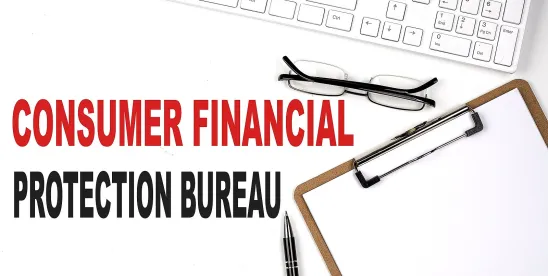We previously reported on changes to leadership at the Consumer Financial Protection Bureau (CFPB), the halt of all activities at the CFPB, and the impacts to the financial services industry. The environment continues to evolve, intensifying uncertainty for regulation and the industry, as the federal agencies responsible for regulating the financial services industry, including the CFPB, the Federal Deposit Insurance Corporation (FDIC), and the Office of the Comptroller of the Currency (OCC) (collectively, “the Agencies”), are impacted by the new administration’s overhaul of regulatory agencies.
CFPB
As discussed in our previous articles, temporary leadership at the CFPB included Treasury Secretary Scott Bessent, named as acting director of the CFPB by President Trump on January 31, 2025, and the Director of the Office of Management and Budget (OMB) Russel Vought, named as acting director of the CFPB on February 7, 2025. Under Bessent and Vought, all CFPB activities were halted, the CFPB’s headquarters were closed beginning the week of Feb. 10, and the next CFPB funding draw from the Federal Reserve was canceled.
On February 11, 2025, President Trump appointed Jonathan McKernan to be the permanent Director of the CFPB, pending Senate confirmation. McKernan, most recently a member of the Board of Directors at the FDIC, will lead the CFPB following his confirmation hearing, leaving Vought head of the CFPB until then. Additionally, Mark Calabria, who headed up the Fair Housing Finance Administration (the current Receiver for Fannie Mae and Freddie Mac) during the first Trump administration, is reportedly working with the OMB as a liaison to the CFPB and working on centralizing the Agencies under OMB, pursuant to a February 18 executive order (EO).
Amidst the halt to activities, it’s been reported that more than 70 CFPB employees have been fired and more than $100 million in vendor contracts have been canceled. The appointment of a permanent CFPB Director with extensive regulatory agency experience may be a sign that the CFPB will remain, albeit significantly reformed under the new administration. However, with President Trump and the Department of Government Efficiency’s (DOGE) Elon Musk calling for a complete dismantling of the CFPB, the future of the CFPB still remains to be seen.
FDIC & OCC
The FDIC staff has been significantly reduced in recent weeks, with approximately 500 employees accepting the Trump administration’s deferred resignation buyouts and 170 probationary employees terminated as well as the rescission of more than 200 job offers. The OCC similarly has begun layoffs, with around 76 employees reportedly terminated as of February 21, 2025.
Travis Hill was named Acting Chairman of the FDIC Board of Directors on January 20, 2025, and has since promised to conduct a wholesale review of bank regulations, guidance, and manuals. Hill most recently served as Vice Chairman of the FDIC and previously served as senior counsel at the United States Senate Committee on Banking, Housing, and Urban Affairs. At the OCC, Acting Comptroller Rodney Hood replaced then-Acting Comptroller Michael J. Hsu on February 7, 2025. Hood was most recently on the National Credit Union Administration Board (NCUA).
Potential Agency Consolidation or Centralization?
In addition to the above mentioned centralization of Agencies under the OMB, speculation in the industry was further fueled by reports that the OCC was planning to accept the transfer of employees from both the FDIC and CFPB. The OCC quickly denied these assertions.
The reports came a day after an EO, “Ensuring Accountability for All Agencies” which requires previously independent agencies to submit any new regulations to the White House, regularly coordinate policies and priorities with the White House, and establish White House Liaison offices. The EO applies to the FDIC, OCC, and FTC, among others, but specifically excludes the Board of Governors of the Federal Reserve System. Notably, and perhaps most controversially, the EO states that the president and attorney general have the sole authority to interpret laws for the executive branch and that no agency employee may provide interpretations that contravene that of the president and attorney general, including through “issuance of regulations, guidance, and positions advanced in litigation.”
Potential Impacts
While the implications of the EO and potential centralization are still unfolding, many in the industry have been eager to see either the elimination or reform of the CFPB. On the other hand, many are weary of the regulatory burden presented by an inconsistent state-by-state regulatory scheme in lieu of federal regulatory frameworks and the uncertainty stemming from these executive actions. However, the appointment of Agency heads and OMB officials with years of both industry and regulatory experience under their belts may be a sign that the Agencies aren’t going anywhere any time soon.
Legal challenges have already been levied against several of the above discussed actions, ensuring uncertainty regarding their near- and long-term effects. For example, the National Treasury Employees Union sought a temporary injunction to block further firings at the CFPB. Judge Amy Berman Jackson of the U.S. District Court for the District of Columbia has issued an order approving the pause on CFPB firings as well as prohibiting the deletion of CFPB data.
As discussed in our prior article, financial institutions should continue to comply with applicable laws and regulations, despite the current upheaval. While uncertainty over the enforcement and rulemaking authority at the Agencies continues, until a complete shuttering of certain agencies and/or recission of federal regulations, financial institutions should plan to comply with all applicable laws and regulations.
Additionally, we continue to expect increased state activity both in legislation and enforcement, which echo initiatives taken by the Agencies. For example, New York has already introduced proposed regulations to limit overdraft fees, similar to the CFPB’s finalized — but not yet effective — Overdraft Lending Rule. A particularly efficient legislative development is Virginia’s House Bill 2515 (HB 2515), which was introduced January 8, 2025, and approved by Virginia’s legislature in a little over a month on February 18, 2025. HB 2515 amends the Virginia Consumer Protection Act by adding prohibited practices, including limitations on mandatory fees and mandating credit card surcharge disclosures.






 />i
/>i
